25 Faces: Makara Thach Sernett
[25faces_intro]
I met Makara while in college at PLU. We worked together at on-campus organizations, and have kept in touch through social media after graduation. She’s also the artistic mind behind my logo. I knew immediately that I wanted Makara to be a part of this campaign as her story is amazing. To start, we will need a bit of a history lesson.
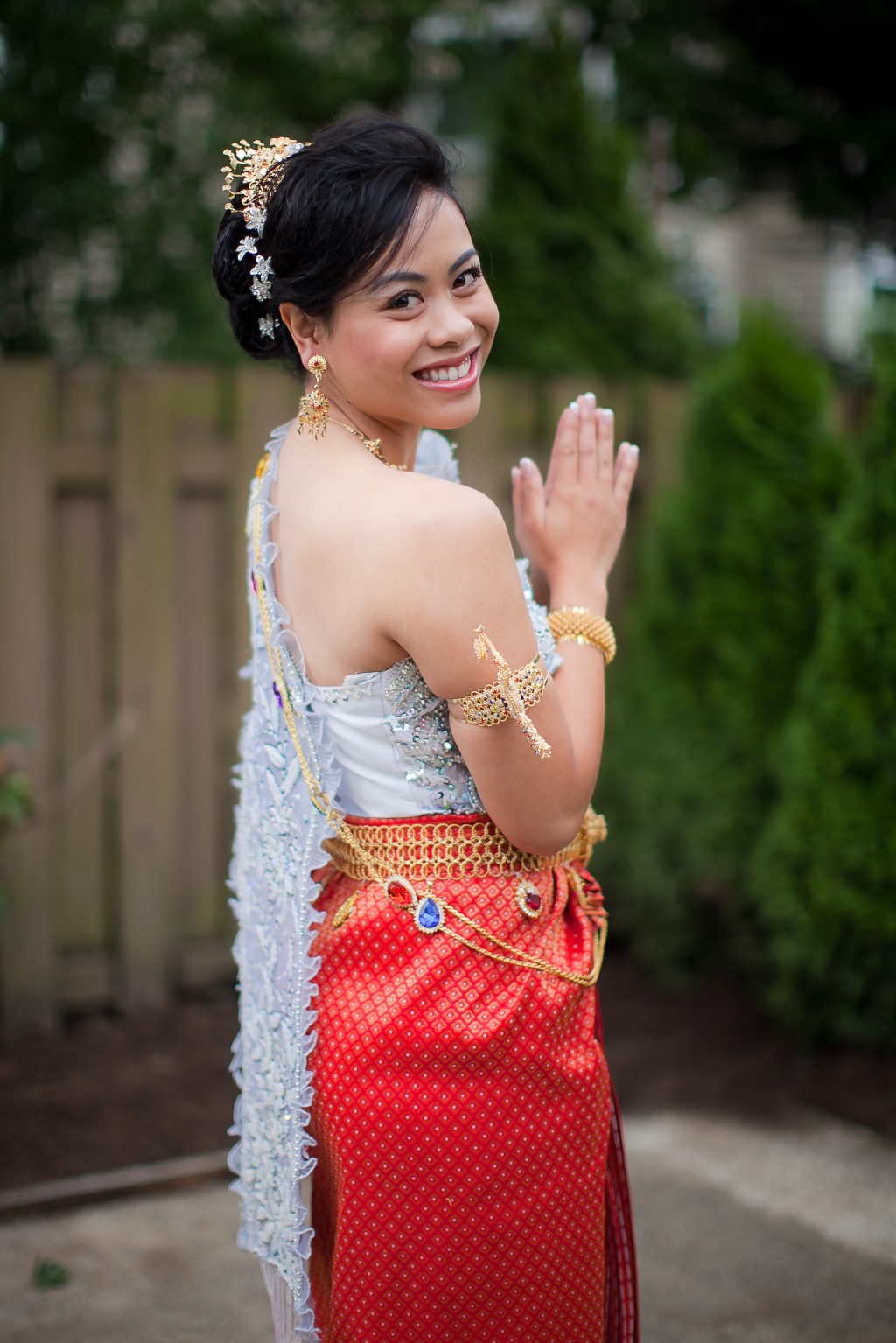
Back in the day, the Cambodia Empire was huge in Southeast Asia. But over time, the empire shrunk and land was split and merged with neighboring countries. Southern Vietnam is one of these places and was originally a part of Cambodia. This area is considered Khmer Krom (for Khmer in the South) where there is a large population of ethnic Khmer people.
For a very long time, Khmer Kroms struggled: the Vietnamese government did not consider them Vietnamese people, while Cambodians in modern-day Cambodia didn’t consider them as Khmer people. Not only that, but there were policies and laws in place that hindered the Khmer people’s way of life in Southern Vietnam. It was a battle to make it in the educational system, people were losing land that had been in their family for generations, it was difficult to practice their religion, and there was a huge stigma being in this ethnic group, in addition to other political issues. In short, life was hard.
Makara Thach Sernett was born in the Tra Vinh province, which is in the Mekong Delta region in Vietnam, and is a Khmer Krom. Her family fled to Thailand just before her first birthday, returned to Vietnam when she was 8, and then immigrated to the US when she was 9.
Kate: Can you explain your family’s journey to immigrate to the US?
Makara: After the Vietnam war, my grandfather fled to the US with US soldiers when he had the opportunity, since it was a time of great chaos. That left my grandma, a single wife with 5 kids to raise in a rural village at a very difficult time. By the time my mother had grown up, married and had me, things were starting to heat up again, and they decided to immigrate to the US.
Of course, things didn’t go as planned, and they fled Vietnam, crossed Cambodia (a perilous journey on foot) and into Thailand. It was my parents, my mom’s younger brother, and me. There we survived and relocated through a few camps (I don’t know how many) within the 7 years we were there. My uncle was able to immigrate with my grandfather’s sponsorship before us three. By 7 years, camps were closing and we had been passed up for immigration yet again, and were sent back to Vietnam where we reunited with the extended families. We lived there for a year while my parents re-applied for immigration. This time things worked out, my grandpa in Seattle could sponsor all three of us and, as they say, the rest is history.
K: What’s one of your first memories in the US?
M: I’m not sure how to explain it all, but I’ll use a bittersweet memory. This story brings me to tears everytime my dad tells it. Although I’m not much of a storyteller, I hope I can convey some of the feelings we experienced and the significance of this story for my family and me. This is the story of my first trip into McDonald’s with my dad when we first came to America, Seattle specfically. This story motivates me to do better and reminds me of my origins. Plus, it explains why McDonald’s will always be special to me.
My grandfather had been living in the states since leaving Vietnam with US soldiers at the end of the war and was able to sponsor my parents and me to the US. Not long after my arrival in Seattle, he took me to McDonald’s. What a magical experience! A burger? Never seen it before, but it sure tasted good! And they gave me a toy with my food? AMAZING! I used to collect clay after rain to make dolls and cars, so a happy meal toy was pretty spectacular. As any excited 9-year-old would, I raved about it to my dad and later on he decided to take me for a treat. The two of us rolled into McDonald’s for a fun daddy-daugther date and was so excited. All is well…. until we get to the counter. At this point in the story is when I start to blame it on the allergies, or I have an eyelash in my eye. And you will see that we obviously did not think this trip through. The cashier asked us what we wanted, that point was clear, but we couldn’t communicate back. My dad couldn’t explain that he wanted the meal that came with a toy for his daughter because he didn’t even know all the English words to say that. And me? I only knew “hello” and “bye”, so how was I to know that what I wanted was called a “happy meal?” All three of us (me, dad and cashier) were pretty distraught. The cashier was probably thinking “who are these strange people and why don’t they speak English?” I kept trying to describe in Khmer the food with the toy to no avail. I didn’t know some key words to effectively explain what grandpa had ordered me, so how was my dad going to translate in the first place even if he could? By then, we were getting strange looks from EVERYONE, so naturally I started crying. We didn’t get any McDonald’s that day. But you better believe that as soon as we knew what was what, McDonald’s was our special treat when we splurged… it still is.
Can you imagine for a second how my dad must have felt? Here’s a man who’s been able to provide for his family through many hardships over the past decade, surviving refugee camp after refugee camp. This man had kept his family alive and together while running through landmine-infested areas. This is a man who ensured the survival of his family while hiding us in a ditch while people were being chased and killed. Who would have thought a McDonald’s happy meal bested this man? But not for long because we all were very adamant about learning English after that.
It’s been 16 years since that McDonald’s trip and we still tell this story and cherish it. Situations like this come up in different forms throughout our lives and we may not succeed right away. However that instance itself doesn’t define you. It’s what you do after.
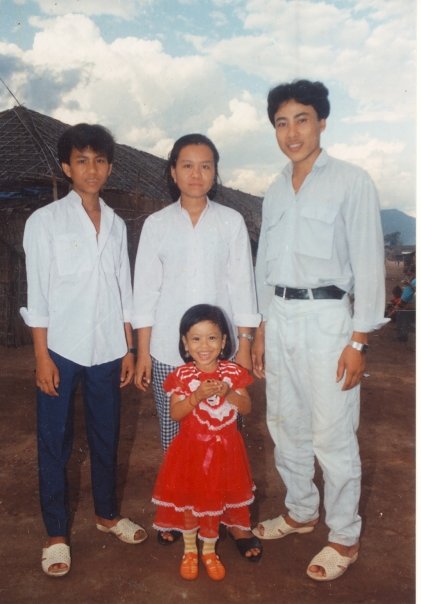
Makara’s dad was able to leave the camps for education and brought her back this dress as a surprise.
K: After immigrating to the US how did your family’s life change?
M: After immigrating to the US, our lives changed drastically. There were many things to learn in order to adapt to the lifestyle here. Learning the language was difficult but I think adjusting to the American system was most difficult. By American system, I mean how communities operate, how people spend their days, how the school system works and how to get from point A to point B, just to name a few. Aside from adapting to everyday life in the US, our outlook on the future changed too. Our goals and dreams morphed as we slowly realize that we could aspire for more and realized that we were in fact capable of fulfilling some of our dreams.
Come to think of it, despite being bullied, I adapted to the school system here pretty quickly. I remember being teased for wearing the same set of clothes multiple times in the week (among other characteristics). At that time, I didn’t quite understand why, but later I realized they must have thought I was dirty for wearing the same clothes again and again, as if I didn’t bathe. I’d like to think I handled it pretty well, but I’m sure my parents will have stories of me crying after school. In any case, my parents and grandpa stressed the importance of my education and I was very motivated to do well. Grandpa had me studying the dictionary and practiced typing every night, and before you knew it, I was transferred from ESL (English as Second Language) class and was with the “normal” kids.
My struggles were very different from my parents’. Finding their place in a new community was challenging enough, let alone doing that while trying to find work without any education, knowing the language, and prior work history. Don’t forget about a driver’s license! There were so much going against them, but luckily we had the support of my grandpa and his network. It was a slow process, and we were on welfare for a while, but my parents are smart and resilient. They made great choices and next thing you know, we moved out and they were buying their first home.
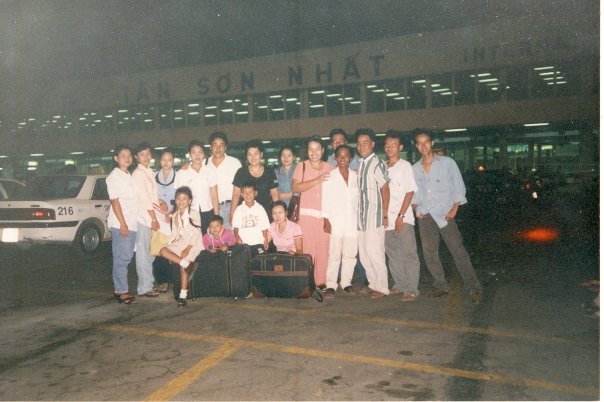
The night Makara and her parents left Saigon, Vietnam for the United States in January 1998. A number of her extended family members came to see them off.
K: How are you active in the Khermican community today?
M: First, I just love that you used the term Khmerican! It’s great that non-Khmer people are recognizing and using the term because it is relatively new. To answer your question, I have been active in the Khmerican community in that I have chosen to offer my creative and design skills to Khmerican, Inc., a company dedicated to providing an online platform that encourages public engagement, discussion and connection of Khmer communities across the US and abroad. I am their remote graphic designer and I designed their logo!
Why Khmerican? My husband serves in the US Army, which means we move quite a bit depending on where he is needed. I’m a fan of serving the country, considering this is where I found refuge, but it’s difficult to stay involved in the Khmer community while traveling so much. Often times, we are in locations where a Khmerican community is nonexistent (such is the case in Fairbanks, Alaska, where we currently are). So it’s great that with the help of internet and social media I am able to contribute to the community indirectly by assisting Khmerican, Inc. and their missions to serve Khmer-American people. Through working with Khmerican, Inc., I was able to meet and learn from such wonderful Khmericans from outside of the Seattle area who are just as passionate about serving our community (if not more) as I am.
Don’t forget to check them out and like their Facebook fan page. There is lots of interesting content that even non-Khmericans can appreciate.
K: Do you have any plans to return to Cambodia?
M: Definitely! I’m working to raise funds for my global service-learning project with the YMCA of Greater Long Beach and Khmerican, Inc.
I am part of a team of individuals who are committed to volunteering and service to others, and this summer we would like to bring that commitment to Cambodia. We will help the Cambodia YMCA by teaching digital media skills to young adults and also bonding with children of the Street Children’s Project through team building activities. Furthermore, we will be providing clothing, food, school supplies and a monetary donation to the Street Children’s Project.
This project is so important to me because not only will I be in service those in need, but also I will be serving the children in my home country. In addition I am thrilled to have this opportunity to contribute to the world YMCA movement through service and learning.
In order to represent the YMCA of Greater Long Beach in Cambodia, I will need to raise $4,000 to fund the trip. These funds are necessary to cover transportation, food, accommodations, and a cultural experience in Angkor Wat. A portion of these funds will be donated to the Street Children’s Project at the YMCA in Cambodia. I have set up a donation page and would appreciate it so much if you could support my cause either by donating or sharing with your network. I need to reach $2,000 by the end of April in order to secure my flight to Cambodia. Please feel free to contact me directly if you have any questions at all.
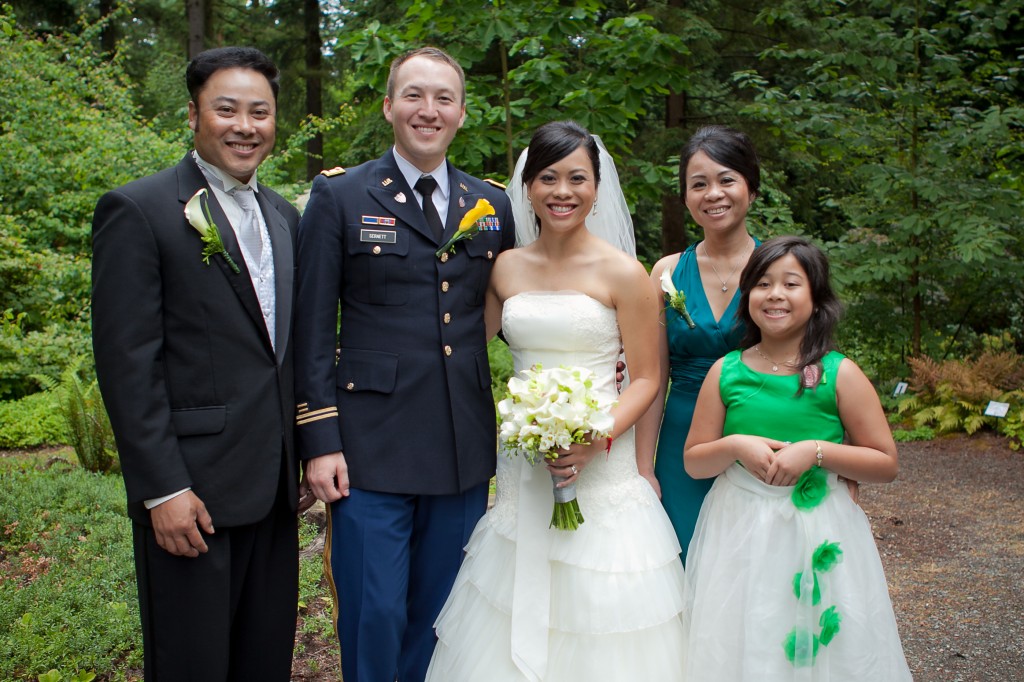


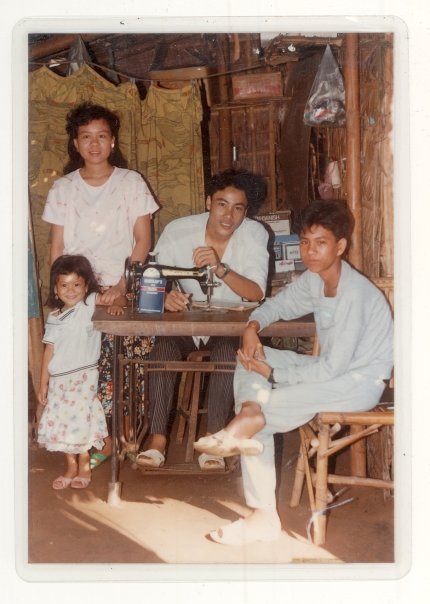
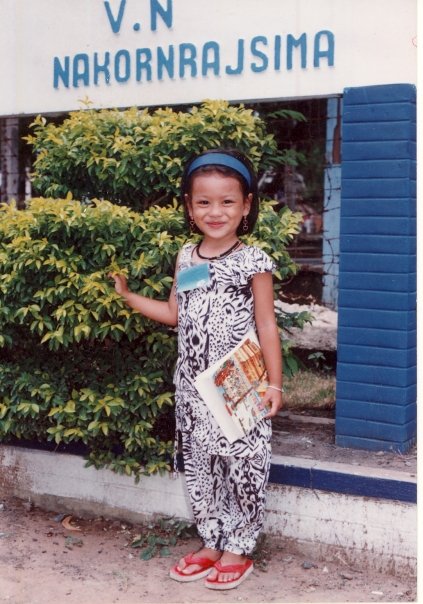








Thank you so much for the story of Makara. Although I had her as Spanish student for a number of years, but I did not know the history of her struggles to arrive in this country. She is a remarkable young woman – I am so delighted to see her desire to give back.